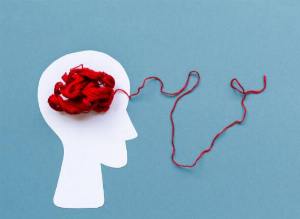- Home
- Forums
- Schizophrenia Forum
- Symptoms and complications of schizophrenia
- Stress Affects People With Schizophrenia Differently
Patients Schizophrenia
Stress Affects People With Schizophrenia Differently
- 10 views
- 0 support
- 1 comment
All comments

Lee__R
Community managerGood advisor
![]()
Lee__R
Community manager
Last activity on 04/03/2020 at 5:04 PM
Joined in 2018
1,336 comments posted | 11 in the Schizophrenia Forum
2 of their responses were helpful to members
Rewards
-
Good Advisor
-
Contributor
-
Messenger
-
Explorer
-
Friend
-
Top chef
What did you think of this article? Do you find stress affects you differently? Do you take any steps to avoid, counter, or control stress / stressful situations?
@Myloves18 @KwM0718 @UnschathedSpade7 @Angleofmine @Auntie @Searchingforanswers @BSC @Acpaper33 @Jwimes @AlissamF @Sheilabluebird @Spydaon3 @Mommy5 @yoligem @Novaraiyn @Kafuller @Harbert @Johntnix2 @Mcikeysdarkprincess @Tyme90 @Trixina @LuvMyBrats @AMangrum @VVandy @Pfoster @Logbracha25 @JcCarpenter @southernmom69 @Brianmay88
Give your opinion
Survey
Survey
Members are also commenting on...
Articles to discover...

06/14/2023 | Testimonial
Schizophrenia: “Don’t let stigma from society stop you from living your best life.”

12/12/2018 | Testimonial
Fighting Schizophrenia Symptoms: a Long Journey Against Paranoia after Denial and being Admitted
Subscribe
You wish to be notified of new comments
You have been subscribed






Lee__R
Community managerGood advisor
Lee__R
Community manager
Last activity on 04/03/2020 at 5:04 PM
Joined in 2018
1,336 comments posted | 11 in the Schizophrenia Forum
2 of their responses were helpful to members
Rewards
Good Advisor
Contributor
Messenger
Explorer
Friend
Top chef
Stressful situations affect the brain and body differently in people with schizophrenia compared to people without the mental illness or individuals at high risk for developing psychosis, a new CAMH study shows.
The relationship between two chemicals released when people experienced stress -- one released in the brain and the other in saliva -- differs in people with schizophrenia. The discovery, recently published in the journal Brain, may provide clues into how to act early to prevent schizophrenia.
"We found a disrupted stress response in people with schizophrenia, which did not occur in either healthy individuals or people at clinical high risk for developing psychosis," says Dr. Christin Schifani, Postdoctoral Research Fellow in the Research Imaging Centre in CAMH's Campbell Family Mental Health Research Institute, and lead author of the study.
As most people with schizophrenia experience psychosis, identifying differences between people at high risk for psychosis and those with schizophrenia may shed light on how schizophrenia develops and ways to prevent its onset.
"The fact we see this disrupted stress response in people with schizophrenia, but not in people at high risk for psychosis, suggests an opportunity to intervene to prevent schizophrenia," says Dr. Romina Mizrahi, Clinician Scientist in the Campbell Institute at CAMH, and senior author of the study. "Developing strategies to cope with stress and build resilience may be the opportunity."
Dr. Mizrahi leads the Focus on Youth Psychosis Prevention (FYPP) Clinic and research program at CAMH, which is dedicated to the early identification and treatment of people aged 16 to 35 who are at high risk of developing psychosis. Helping people to identify sources of stress and adopt coping strategies is a key focus of the clinic's work. Assessing the impact of stress management strategies to reduce psychosis and schizophrenia risks will be a goal of future research.
In the current study, these new insights come from examining two important chemical messengers -- dopamine and cortisol -- in people under stress. Dopamine is a neurotransmitter, a chemical that carries signals from one brain cell, or neuron, to another. In this study, the researchers focused on dopamine released in the prefrontal cortex, the region at the front of the brain involved in complex functions, including regulating emotions. Cortisol is a hormone, released from the adrenal glands to help the body handle stressful situations.
In healthy individuals, both dopamine and cortisol levels typically increase when people experience stress. This link between dopamine release and cortisol release did not appear in people with schizophrenia. "Cortisol is the main stress hormone, so this suggests a disrupted stress regulatory system in people with schizophrenia," says Dr. Mizrahi.
To investigate responses to stress, the researchers used a math test. In the first stage of the study, participants answered math questions on a computer screen without any time limit while a positron emission tomography (PET) scanner produced an image of dopamine in their brain as they completed the task. In the second stage -- the stress test -- participants answered math questions under time constraints and while receiving negative verbal feedback, also in the PET scanner. Saliva samples were collected during both stages to measure cortisol levels. The study included 14 people with schizophrenia, 14 people at clinical high risk for psychosis and 12 people without mental illness.
The findings build on Dr. Mizrahi's earlier research in another region of the brain, the striatum. "Our previous research had shown that people at high risk for psychosis and those experiencing a first episode of psychosis have abnormal, or increased dopamine release in response to stress in the striatum," says Dr. Mizrahi. "Since the prefrontal cortex is involved in regulating striatal dopamine release, we wanted to understand what was happening in the step before the striatum."
But, contrary to what they had expected, the researchers did not find significant differences in dopamine release in the prefrontal cortex among the three groups of participants. "Our findings of an increase in dopamine release in the striatum, but not in the cortex, show the complex brain regulatory systems in both people at high risk for psychosis and people with schizophrenia," says Dr. Mizrahi.